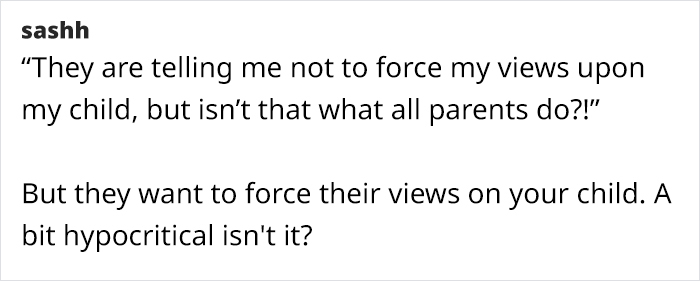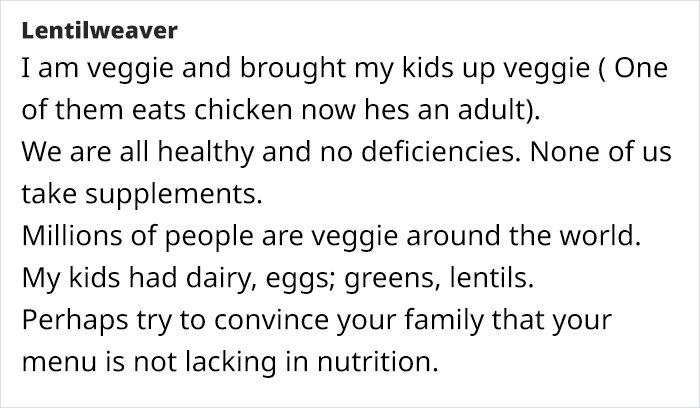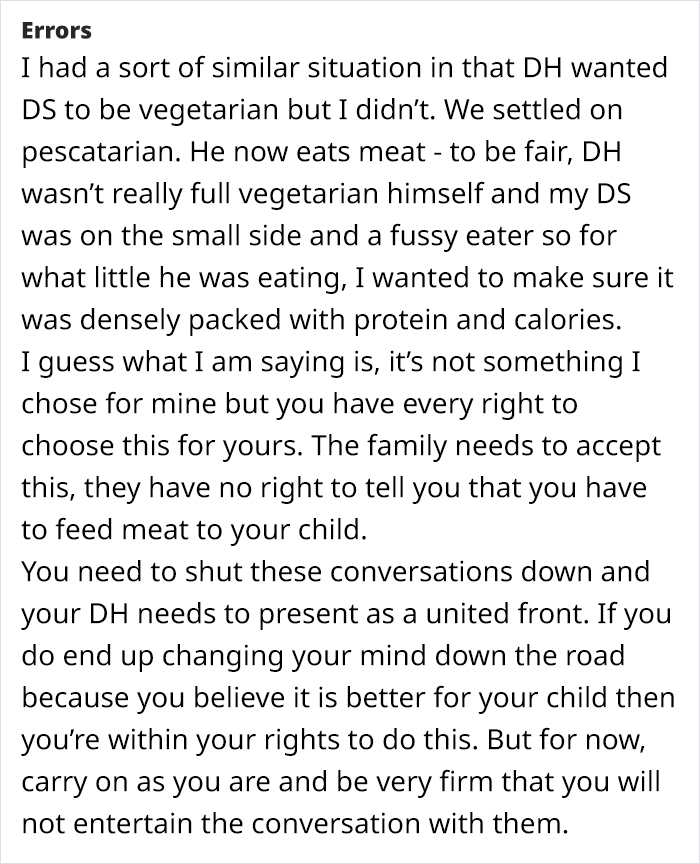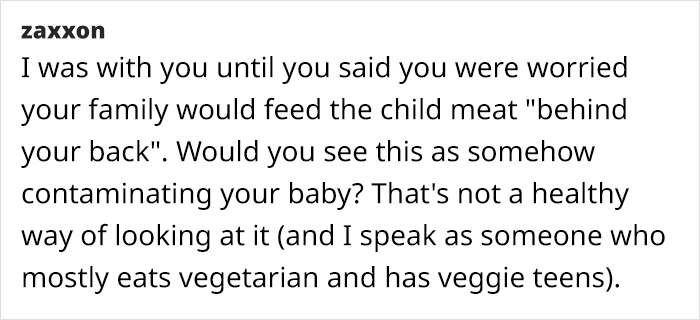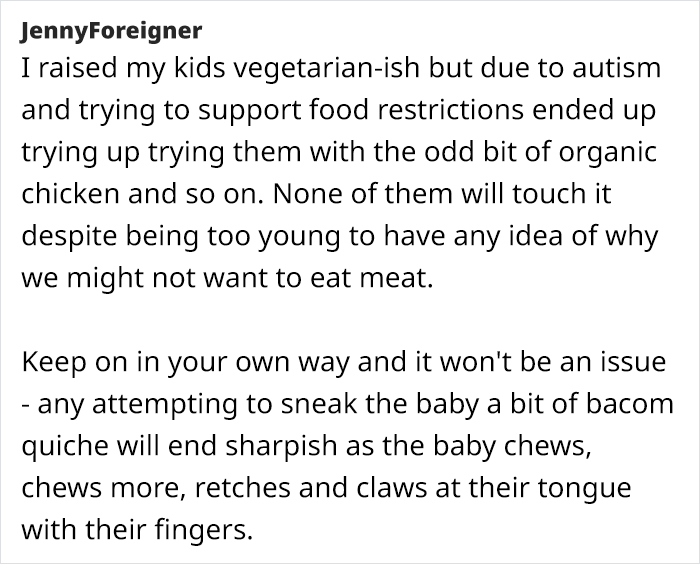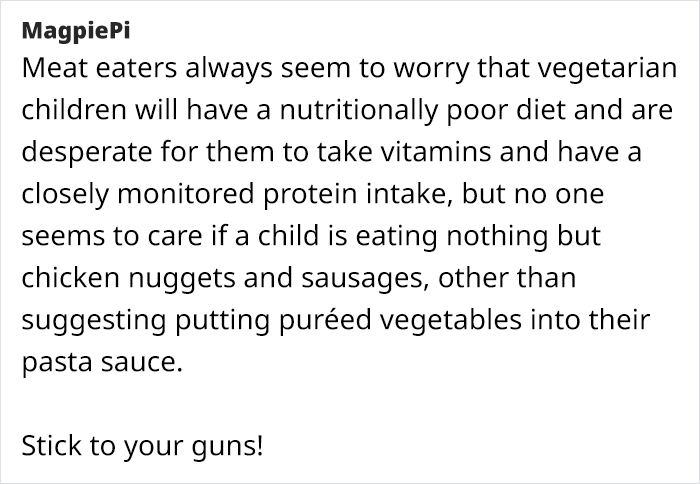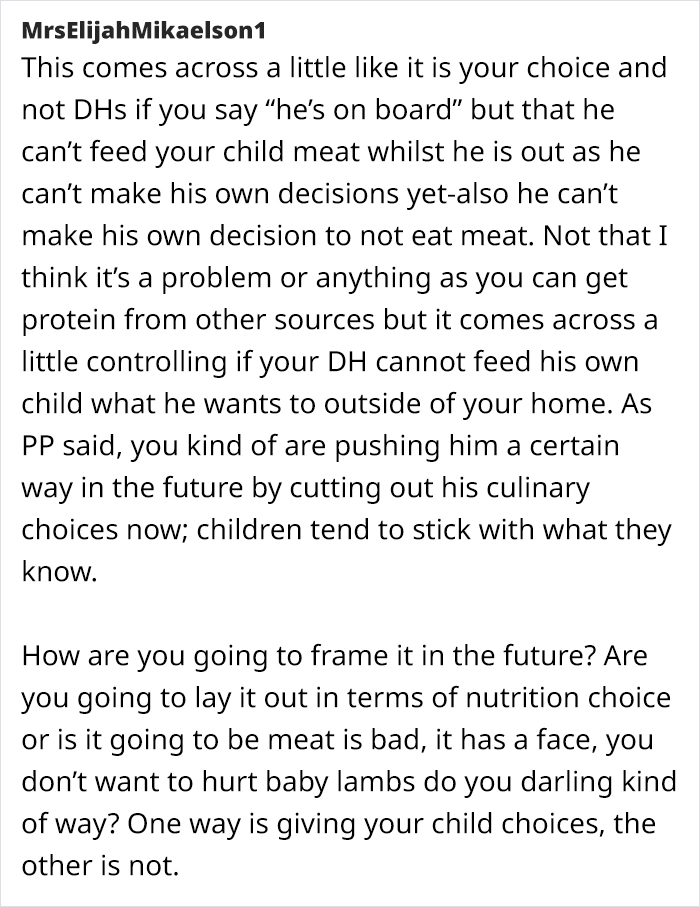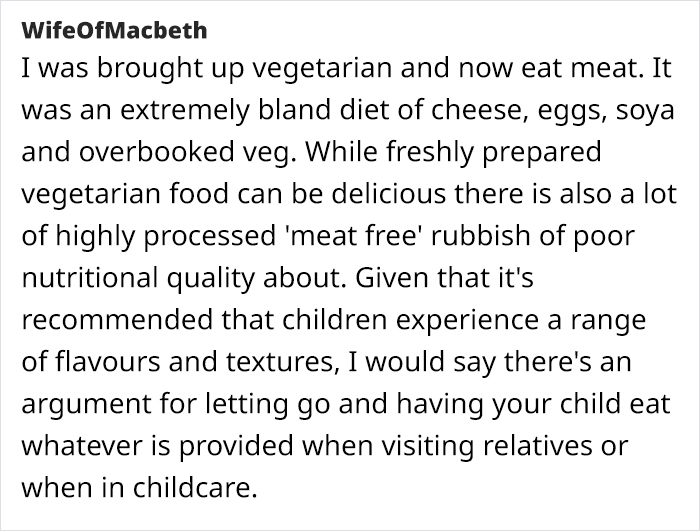Vegetarianism is no longer for adults only; kids want to do it too! 5% of adults in the U.S. identify themselves as vegetarian or vegan, with 5% of children saying they’re vegetarian and 2% saying they’re vegan. People get into heated debates over whether a no-meat diet gives children all the nutrients they need.
And this mother’s family worries as well. Recently, one mom asked others for advice on how to deal with family members who disagree with her vegetarian lifestyle. She decided not to feed her baby any meat but worried the in-laws might do so behind her back.
To know whether vegetarian diets are suitable for infants and children, Bored Panda reached out to specialist pediatric dietitian Lucy Upton. She told us all about what parents who want to skip the meat in their baby’s diet should know.
More info: The Children’s Dietitian | Lucy Upton
This vegetarian mother decided not to feed her baby meat but faced backlash from her family
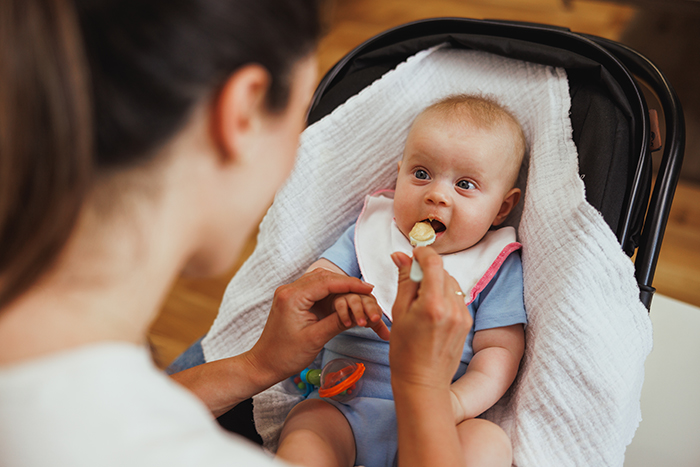
That’s why she sought advice online, asking others whether her decision was so unreasonable
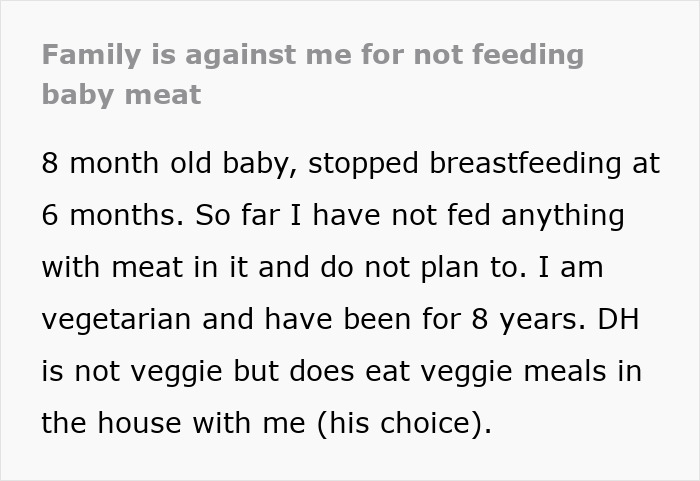
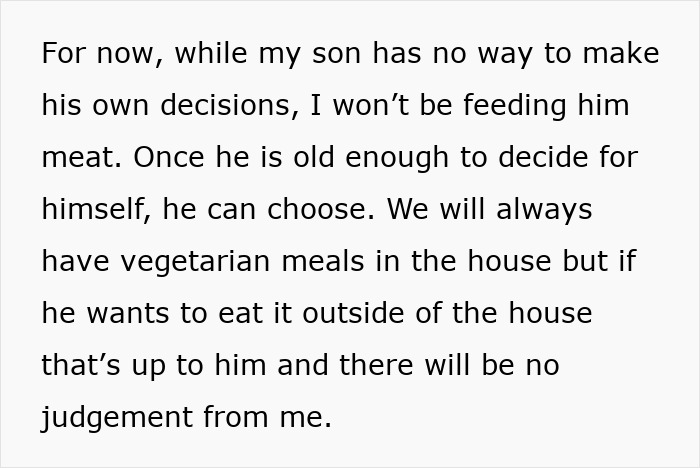
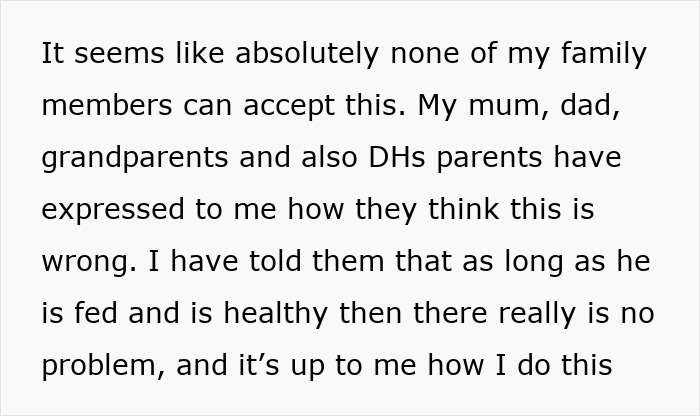
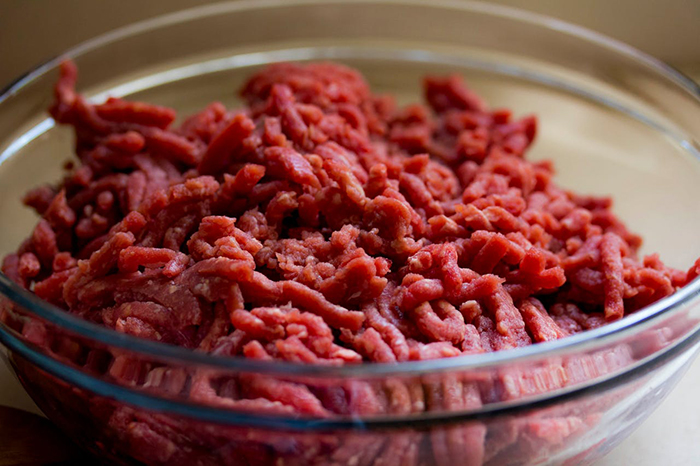
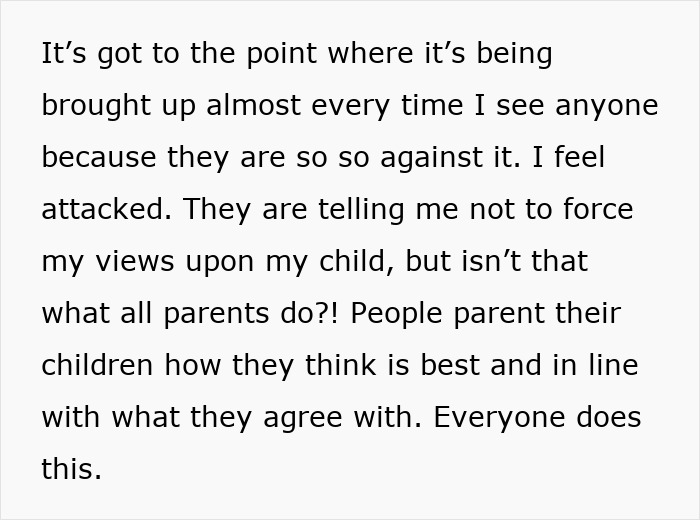
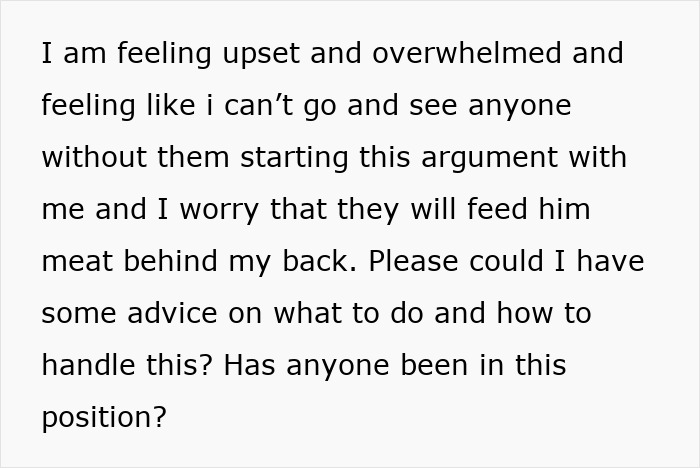
A vegetarian diet can be perfectly suitable for infants if parents pay close attention to the nutrients the baby is getting

Image credits: Pexels User / pexels (not the actual photo)
The family in this story worries that without meat the 8-month-old might not be getting enough of the nutrients he needs to grow into a healthy child. However, most specialists say that it’s completely reasonable to feed your baby a vegetarian diet as long as you monitor their protein intake.
In 2009, the American Dietetic Association concluded that a well-planned vegetarian or vegan diet is suitable at any stage of life. They claimed it’s safe for pregnant women and nursing mothers as well as children and babies.
Specialist pediatric dietitian Lucy Upton tells Bored Panda that feeding a baby a vegetarian diet is completely doable. “A well-planned vegetarian diet can absolutely provide all the nutrition a baby needs,” she told us. “It is encouraged that parents pay close attention to nutrients like:
- fat, which can be found in foods like oils, dairy, nuts/seeds, avocado;
- iron, which can be found in beans, pulses (legumes), tofu, fortified cereals, nuts and seeds and eggs;
- B12, from dairy, eggs, and fortified foods like cereals.
And, of course, overall dietary variety,” Upton added.
Generally speaking, there’s no need to panic when it comes to a baby having no meat in their diet. “Despite common worries, protein intake is rarely a concern for vegetarian babies as it can be found in a wide number of foods, from tofu to beans, lentils, eggs, dairy, and even whole grains,” Upton explained to Bored Panda.
Vegetarian children might grow up more empathetic and sensitive to others and the world around them

Image credits: Tatiana Syrikova / pexels (not the actual photo)
People choose to go vegetarian or vegan for different reasons. In a 2023 YouGov poll, 55% of Americans said they don’t eat meat because they want to live a healthier lifestyle. 38% said they are vegetarian or vegan based on personal preference, 31% cited food safety concerns, 30% said it helps them watch their weight, and 39% do it because of moral reasons.
The mother in this story didn’t explain her reasoning for going vegetarian, but she also stressed how she wouldn’t object if her son wanted to eat meat when he grew older. Surprisingly, adopting a vegetarian diet from an early age can have some positive benefits for children in the long run.
Child psychotherapist Ryan Lowe explained to The Independent how not eating meat can make children more empathetic. “It builds empathy and sensitivity to others and a very different way of looking at the world, and it creates a level of being able to think about and bear pain,” she explained. “I think this is an important part of bringing up a well-adjusted and empathetic human being.”
However, she recommends implementing the changes in diet early on. If parents decide to suddenly make their children go vegan or vegetarian in adolescence, that can have a negative impact on the children. “Parents need to be careful not to introduce any anxieties or shame around food along with the change in the diet,” Lowe said.
The mom clarified that if the kid wants to eat meat later in life, she’s totally cool with it, just not as long as she’s controlling his diet
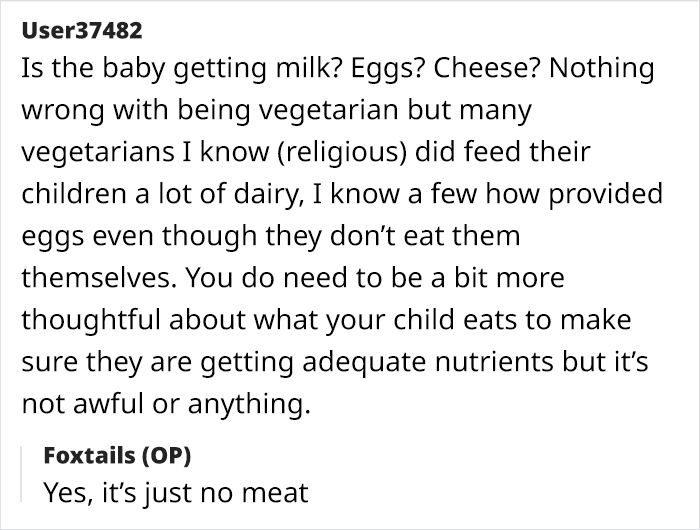
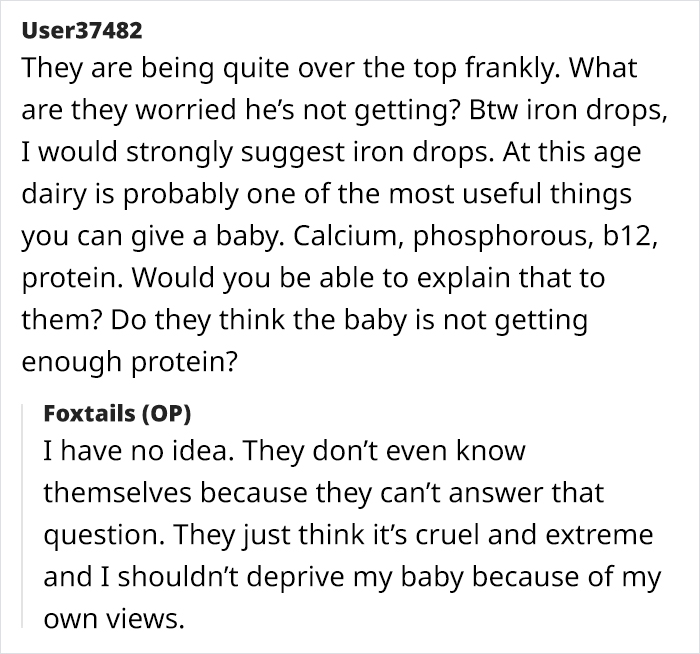
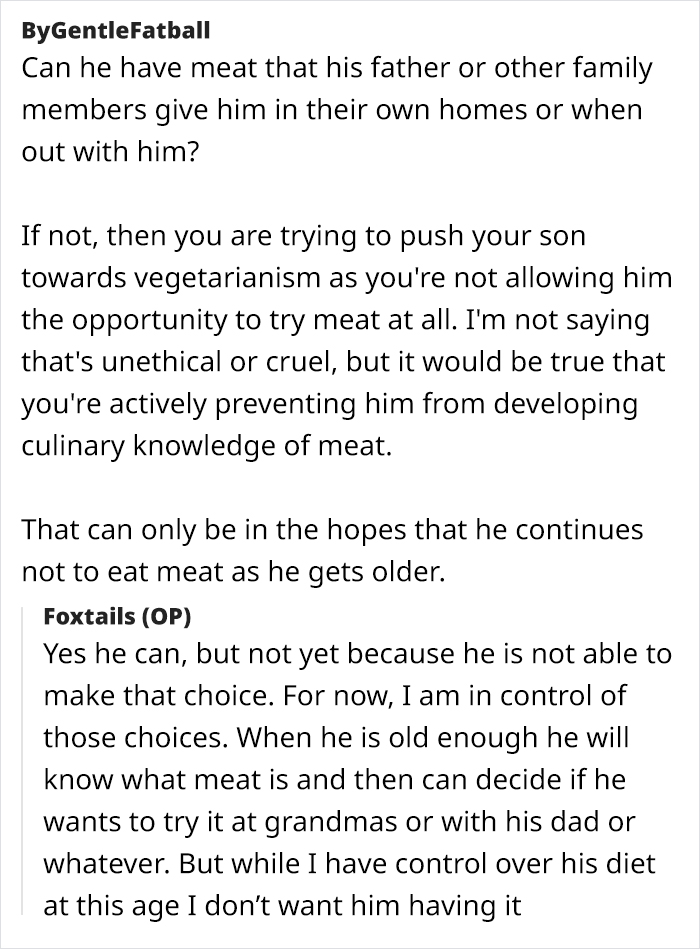
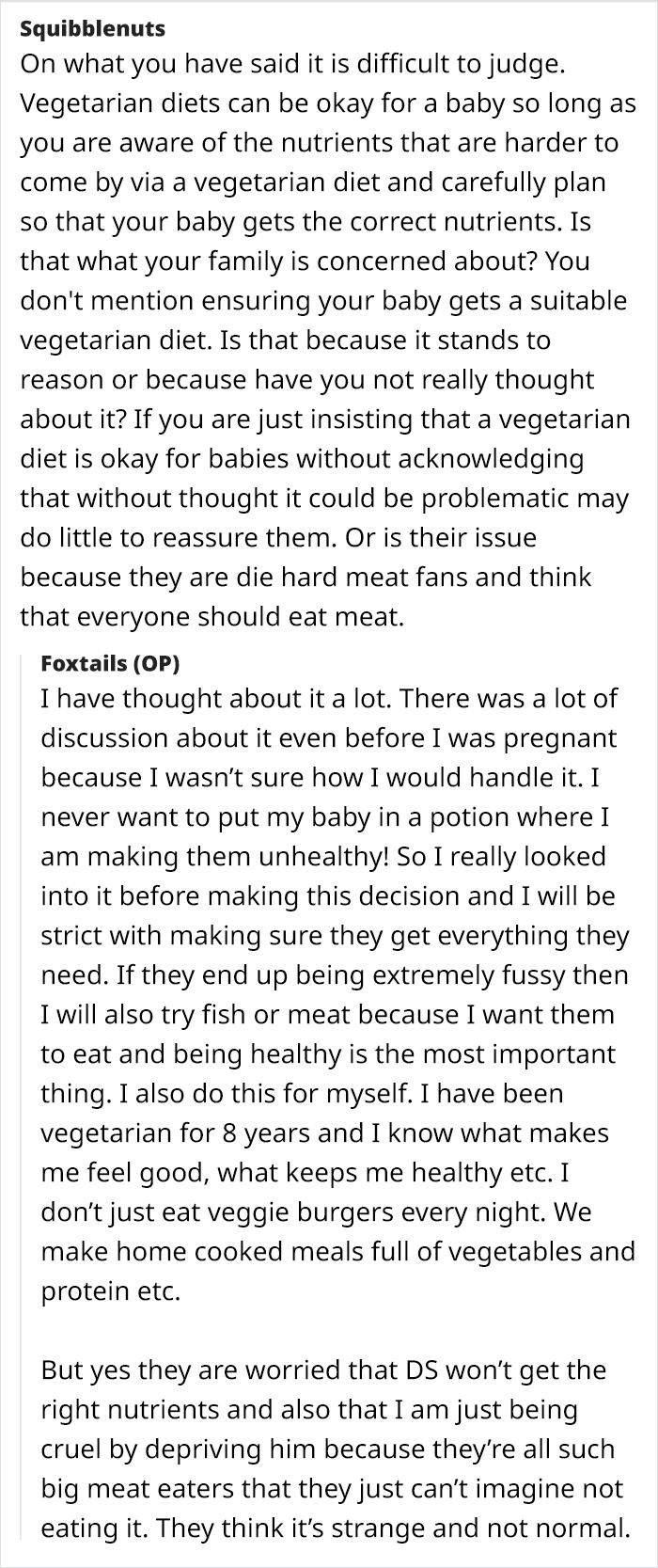
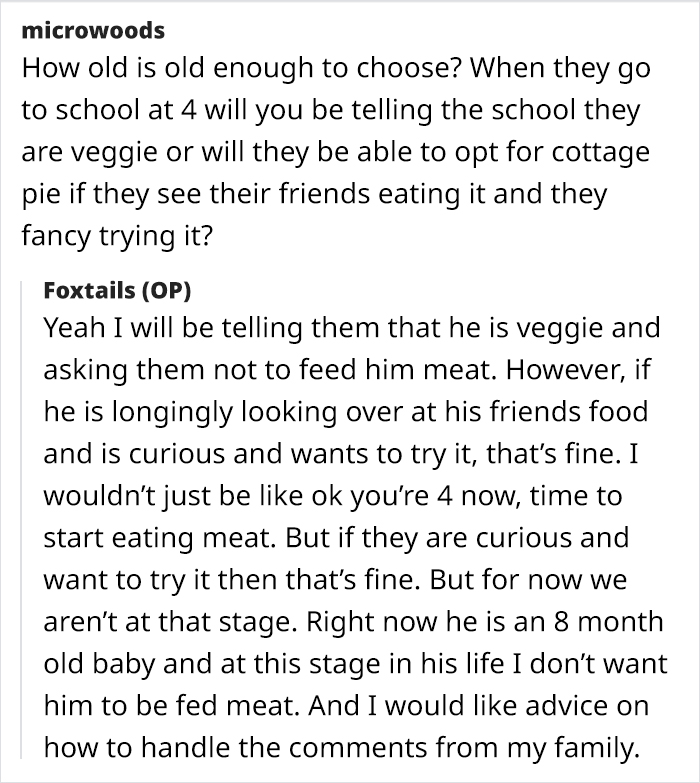
The reactions from people varied: some believed it’s nobody else’s business what the baby eats, and others saw red flags in the mom’s philosophy

